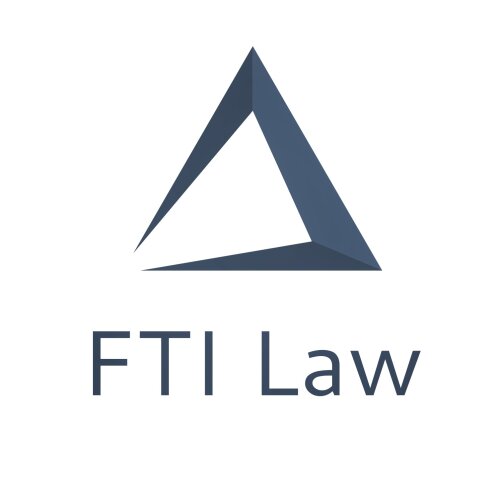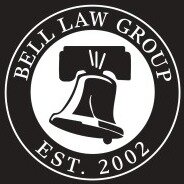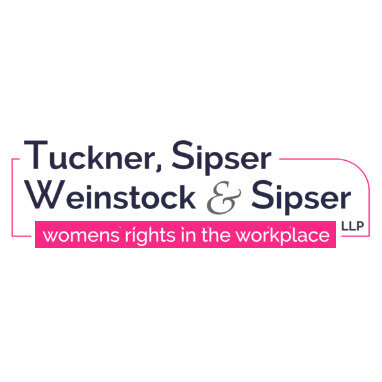Best Employment Rights Lawyers in New York
Share your needs with us, get contacted by law firms.
Free. Takes 2 min.
Or refine your search by selecting a city:
List of the best lawyers in New York, United States
About Employment Rights Law in New York, United States
Employment rights law in New York protects workers from unfair treatment, unsafe conditions, and discrimination in the workplace. These laws grant employees a range of protections related to wages, overtime, workplace safety, family leave, and protection against wrongful termination and discrimination. In addition to federal labor laws that set minimum standards, New York State has implemented broad and sometimes more comprehensive protections for employees. Understanding your rights is crucial whether you are starting a new job, facing issues at work, or ending employment.
Why You May Need a Lawyer
Employment law is complex, with unique rules for different situations. You might need an employment lawyer in New York if you experience:
- Unlawful termination or retaliation after making a complaint or claim
- Discrimination based on race, gender, religion, disability, sexual orientation, or other protected categories
- Harassment, including sexual harassment, in the workplace
- Issues related to pay, such as unpaid wages, overtime disputes, or misclassification as an independent contractor
- Problems with workplace safety or retaliation for reporting unsafe conditions
- Family or medical leave disputes under the Family and Medical Leave Act or New York Paid Family Leave
- Concerns related to employment contracts, non-compete agreements, or severance pay
An attorney specializing in employment law can help you understand your rights, file the necessary complaints, and represent you in negotiations or legal proceedings.
Local Laws Overview
New York State employment laws go beyond many federal minimums to offer additional protections. Key aspects include:
- Minimum Wage and Overtime: New York’s minimum wage is higher than the federal minimum, and the amount may vary by location and employer size. Most employees are also entitled to overtime pay (time and one half) for hours worked over 40 in a workweek.
- Paid Family Leave: New York’s Paid Family Leave law offers eligible employees time off to bond with a new child, care for a relative with a serious health condition, or assist loved ones when a family member is deployed abroad on active military duty.
- Anti-Discrimination Laws: The New York State Human Rights Law protects employees from discrimination and harassment based on race, color, national origin, sex, gender identity, religion, disability, age, sexual orientation, marital status, genetic characteristics, and more.
- Sexual Harassment Protections: New York requires employers to provide annual sexual harassment training and has strict laws against sexual harassment in all workplaces, regardless of size.
- Wrongful Termination: While New York is generally an “at-will” employment state, terminations based on discrimination, retaliation, or violation of contract are unlawful.
- Workplace Safety: The New York State Department of Labor and the federal Occupational Safety and Health Administration (OSHA) protect workers from unsafe conditions and retaliation for reporting violations.
Frequently Asked Questions
What is considered wrongful termination in New York?
Wrongful termination includes being fired for discriminatory reasons, retaliation for filing a complaint or whistleblowing, or in violation of an employment contract or public policy.
What should I do if I experience workplace discrimination?
Document the events, including dates and details, report the discrimination to your employer or human resources, and consider filing a complaint with the New York State Division of Human Rights or the Equal Employment Opportunity Commission (EEOC).
How much is the minimum wage in New York?
The minimum wage in New York varies by region and employer size. As of 2024, it ranges from 15 dollars per hour or more in New York City, Long Island, and Westchester, with other regions slightly lower.
Do all employees have the right to paid family leave?
Most private employees in New York State are eligible for Paid Family Leave if they meet certain work duration criteria. Public employees may be covered if their employer has opted in.
Am I entitled to overtime pay in New York?
Most non-exempt employees in New York must be paid one and one half times their regular rate for all hours worked over 40 in a workweek. Some workers are exempt from overtime due to their job duties or salary.
Can my employer retaliate against me for reporting violations?
It is illegal for employers to retaliate against employees for reporting violations of law, making complaints of discrimination or harassment, or participating in investigations.
What can I do if I have been sexually harassed at work?
You should document the harassment, report it to your employer or human resources, and consider seeking legal advice or filing a complaint with the New York State Division of Human Rights or the EEOC.
How do I know if I am an employee or an independent contractor?
The classification depends on how much control your employer has over your work and other factors. Misclassification is common and can be challenged with the help of a labor attorney.
Are undocumented workers protected by employment laws in New York?
Yes, undocumented workers are generally entitled to protection from discrimination, wage theft, and unsafe working conditions under state and federal laws.
What should I do if I have not been paid my wages or overtime?
Keep accurate records of your work hours and pay, attempt to resolve the issue with your employer, and if unresolved, file a complaint with the New York State Department of Labor or seek legal help.
Additional Resources
Several organizations and agencies provide information and assistance related to employment rights in New York:
- New York State Department of Labor
- New York State Division of Human Rights
- Equal Employment Opportunity Commission (EEOC)
- Occupational Safety and Health Administration (OSHA)
- Legal Aid Society
- New York City Commission on Human Rights (for city residents)
- New York Legal Assistance Group
- Community and workers’ centers in various regions
Next Steps
If you think your employment rights have been violated, consider taking these steps:
- Keep detailed records of relevant events, correspondence, and pay information
- Try to resolve the matter internally through your employer or human resources department
- Review your rights through reputable resources provided above
- Contact a qualified employment law attorney for personalized legal advice, especially for serious or ongoing issues
- If needed, file a formal complaint with the proper agency, such as the New York State Department of Labor or the Division of Human Rights
Employment law can be complicated. Consulting with an experienced attorney ensures you understand your rights and options according to the specifics of your situation. Taking prompt action increases the likelihood of a favorable resolution.
Lawzana helps you find the best lawyers and law firms in New York through a curated and pre-screened list of qualified legal professionals. Our platform offers rankings and detailed profiles of attorneys and law firms, allowing you to compare based on practice areas, including Employment Rights, experience, and client feedback.
Each profile includes a description of the firm's areas of practice, client reviews, team members and partners, year of establishment, spoken languages, office locations, contact information, social media presence, and any published articles or resources. Most firms on our platform speak English and are experienced in both local and international legal matters.
Get a quote from top-rated law firms in New York, United States — quickly, securely, and without unnecessary hassle.
Disclaimer:
The information provided on this page is for general informational purposes only and does not constitute legal advice. While we strive to ensure the accuracy and relevance of the content, legal information may change over time, and interpretations of the law can vary. You should always consult with a qualified legal professional for advice specific to your situation.
We disclaim all liability for actions taken or not taken based on the content of this page. If you believe any information is incorrect or outdated, please contact us, and we will review and update it where appropriate.
Browse employment rights law firms by city in New York
Refine your search by selecting a city.
















